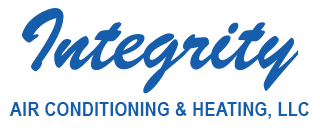As the hot summer sunshine starts to fade and the relief of fall starts to settle in, residents of Phoenix start preparing their homes and yards for the the upcoming cold weather. For many, that leads to the question of whether they need to cover their exterior air conditioner for the winter.
While it may seem like a good idea, the truth is there are a number of reasons why you shouldn’t cover your AC unit in the winter. In addition to not being needed, covering your outdoor air conditioning equipment can sometimes cause problems.
Here, the specialists at Integrity AC & Heating LLC share five reasons why covering your AC doesn’t need to be on your fall to-do list and what you should do instead.
1. Snow won’t Hurt Your AC
Outdoor AC units are supposed to withstand harsh weather conditions like snow in the wintertime. These units are built with durable materials and parts that can handle the outdoor elements without damage. The coils and fins of the unit are constructed to resist corrosion, and the housing is designed to protect the internal parts from moisture and debris.
2. Covering Your Air Conditioner Can Cause Mold
One of the reasons you should not cover your AC unit in the wintertime is because doing so can trap moisture—which is not at all what you want in your outdoor unit. That’s because trapping moisture inside the unit creates the perfect conditions for mold and mildew to flourish.
Mold and mildew not only have an unpleasant aroma, but they can also create health risks, especially for people with respiratory issues or allergies. Additionally, the unwanted moisture can corrode the internal components of the AC unit.
Rather than covering the unit, instead provide proper drainage and keep the area around the unit clear of debris, allowing for efficient airflow and preventing moisture buildup.
3. A Covered Air Conditioner Can Host Animals
Human beings aren’t the only ones who prepare for winter. Animals that live around your home are also looking for a warm, cozy place to crash for the cold months. For many creatures, a covered air conditioner is an ideal winter refuge.
Birds, mice, chipmunks and even rats commonly make homes inside covered air conditioners. Animals residing in a covered air conditioning unit can cause many problems. Rodents can chew through wires, insulation and other components, causing damage that may require costly repairs. Debris animals bring into the AC to create a warm and comfortable nest can block airflow and ventilation, decreasing the efficiency of the appliance and potentially causing it to overheat. In addition, animal waste can result in unsanitary conditions and bad odors.
Leaving your air conditioner uncovered helps discourage animals, because an uncovered AC provides less shelter from chilly temperatures than a covered unit. That’s better for your cooling system—and leaves you with less mess to pick up and things to repair once the snow melts.
4. A Winter Cover for AC Units Restricts Airflow
Another reason not to cover your air conditioner in the winter is because a cover blocks airflow through the unit. Suitable airflow is crucial for the AC system because it helps with heat exchange and enables the unit to cool efficiently. When airflow is constrained, the system has to work harder to achieve the desired temperature, leading to increased energy consumption and strain on the components.
In addition, if you use your AC without knowing that the outdoor unit is covered or because you simply forgot, it could result in a range of problems. One issue is that the lack of proper airflow could cause the compressor to overheat, causing its failure or damage. That’s why it is vital to ensure the outdoor unit is free from obstructions and is not covered to maintain the best possible airflow.
5. AC Maintenance Is More Effective Than Covering Your Air Conditioner
The bottom line is, it’s a lot more effective to do a little maintenance for your air conditioning unit than to cover your outdoor AC unit.
There are a number of key maintenance tasks you should prioritize to ensure maximum performance and longevity of your AC unit. First, it’s smart to check your outdoor AC unit regularly and get rid of any debris such as leaves, sticks and dirt to promote proper airflow. Second, check and clean the coils, fins and filters to make sure they are free from dirt and dust buildup that would impede successful heat exchange or airflow.
Routine air conditioning maintenance not only enhances efficiency, but it also helps extend the unit’s life span, lowers energy consumption and protects against costly repairs. Rather than using a cover, putting time and effort into routine air conditioning maintenance is a proactive strategy that can substantially benefit your entire HVAC system in the long run.


